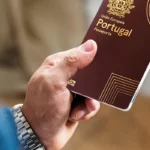Many countries across the world began launching a special kind of visa after the rise of the pandemic in an aim to attract foreign remote workers into their economies.
These visas are known as Digital Nomad Visas and they grant qualifying individuals residency rights in their respective country for a specific amount of time, usually between six months to two years. While the Italian government is yet to launch its own, the Italy Digital Nomad Visa 2024 is well on its way.
What is Italy's Digital Nomad Visa?

While the Italian Digital Nomad Visa is yet to be launched at the end of 2022, non-EU nationals are still capable of establishing residency and working remotely in Italy. This is usually possible through the Italian Self-employment Visa.
The Italian Self-employed Visa is similar to the Digital Nomad Visa – they both enable “highly qualified” foreigner remote workers and freelancers who work outside of the EU to relocate to Italy and legally work there.
Although the Nomad Visa requirements are still unclear as the program is yet to come into full effect, it can be deduced that its requirements are similar to those of the Self-employed Visa.
Namely, qualifying self-employed individuals must meet the minimum income requirement set by the Italian government, hold a clean criminal record, and have a comprehensive health insurance plan as well.
Italy Digital Nomad Visa Eligibility Criteria

After the fifth year of residency, they may receive their permanent residence permit. Additionally, individuals are capable of including their immediate family members in their applications for residency.
It is important to note that digital nomads will have to pay Italy Digital Nomad Visa taxes or self-employment taxes when they relocate to the nation, and comply with social security provisions as well.
Although tax residents in Italy would normally have to pay a large tax rate on their annual worldwide income, foreign professionals and remote workers who relocate to Italy through a Self-employed Visa will only have to pay taxes on five percent of their annual income.
Moreover, foreign workers who acquire the new Digital Nomad Visa will enjoy a 70 percent tax reduction on their global income if they register their residency in Italy.
Italy Digital Nomad Visa Requirements
Digital nomads who want to apply for a Self-employed Visa in Italy will have to ensure they meet the following requirements before they can acquire a residence permit:
- Be a non-EU or non-EEA national.
- Hold a clean criminal record.
- Show proof of suitable accommodation in an Italian state.
- Have an annual gross income of at least €8,500 that was earned one year prior to their visa application or is promised by a contractual compensation for services provided to Italian clients or an Italian company.
- Have health insurance to cover their hospitalization or medical expenses in Italy for the first 30 days of their entry
- Demonstrate a certificate of ‘no impediment’ for them to provide their freelance services and highly qualified work activities in Italy.
- Show proof of sufficient economic funds to maintain their stay and perform their services.
Alternative Route: The Italian Self-Employment Visa

The Self-employed Visa can be used in place of the Italian Digital Nomad Visa, and its benefits are truly unmatched – whether it’s the advantage of double taxation treaties and other tax exemptions, access to better healthcare, or otherwise.
By applying for the Self-employed Visa in Italy, you’ll have the right to reside and work remotely in one of the most beautiful European countries without being considered a tax resident there.
You’ll also be able to travel across the rest of the European Union visa-free within just two months of your application being submitted and approved.
Moreover, you can include your close family members in your application, and enjoy the benefit of family reunification. All of which will make remote work a lot more convenient for you.
Application process
While the requirements and application process of the new visa are still unclear, foreign workers who are interested in performing their work remotely from Italy through the Self-employed Visa can expect to go through the following process before obtaining their new permit:
1. Fill out the application form: Those who are looking to work remotely as digital nomads in Italy before the start of next year will need to complete an application form for the Self-employed Visa, carefully following its instructions.
2. Set an appointment: To apply for either visa, you’ll have to locate a visa office in your home country to set an appointment with the relevant Italian authorities. Your appointment can either be at an Italian Embassy or an Italian Consulate, where you’ll be submitting your application and biometric data, and attending an interview as well.
3. Prepare your documents: After you have completed your application and scheduled your appointment, you will need to prepare the necessary documents that you have to present. You may need to have some documents translated and certified with an Apostille stamp.
4. Submit your application: Once you have all your documents prepared and submitted, you will need to attend an interview and pay the visa fee. Do note that some countries may ask you to pay the fee prior to your appointment. In that case, you will need to show the receipt of payment as part of your application documents.
How Can Global Citizen Solutions Help You?
Global Citizen Solutions is a boutique migration consultancy firm with years of experience delivering bespoke residence and citizenship by investment solutions for international families. With offices worldwide and an experienced, hands-on team, we have helped hundreds of clients worldwide acquire citizenship, residence visas, or homes while diversifying their portfolios with robust investments.
We guide you from start to finish, taking you beyond your citizenship or residency by investment application.

Frequently Asked Questions about Italy Digital Nomad Visa
How long does it take to get?
Applying for Italy’s digital nomad visa involves several steps and can take a few months from start to finish.
After submitting your application, the approval process can take several weeks to a few months. Each consulate may have different processing times, so it’s essential to check with your local consulate for specific details.
Once your visa is approved, you have eight days after arriving in Italy to apply for a residence permit (permesso di soggiorno). This involves submitting additional paperwork at a local immigration office. The processing time for the residence permit can take one to two months.
The entire process from initial application to receiving the residence permit could take around 3 months, depending on efficiency and workload at the consulates and local immigration offices.
Is Italy good for digital nomads?
Italy is among the most favorable countries for digital nomads and remote workers, much like Portugal.
Many individuals who are unable to relocate to Italy apply for the Portugal Digital Nomad Visa and Portugal D7 Visa.
Does Italy allow digital nomads?
Yes, Italy allows digital nomads to relocate to the country and set up their remote work there.
In fact, by the end of 2022, there will be two primary visa options for highly qualified non-Eu citizens who want to relocate as remote workers.
Does the visa lead to citizenship?
Although the Digital Nomad Visa grants you residency rights, it does not directly lead to citizenship in Italy.
However, the government has a Golden Visa program that can lead to permanent residency and citizenship.
Are there other similar visas in Europe?
Yes, you can currently apply for the Malta Digital Nomad Visa, Curaçao Digital Nomad Visa, and Portugal Digital Nomad Visa, among others – including soon the Spain Digital Nomad Visa.
What are the top European cities for digital nomads in 2024?
Here are some of the top European cities for digital nomads in 2024, each offering unique advantages in terms of lifestyle, cost of living, internet connectivity, and community:
- Lisbon, Portugal: Known for its beautiful weather, panoramic views, and friendly locals, Lisbon is a top choice for digital nomads. The city offers a strong tech scene, numerous coworking spaces, and high-speed internet. Despite recent increases in rent, Lisbon remains a vibrant and culturally rich city with a thriving digital nomad community.
- Barcelona, Spain: Barcelona attracts digital nomads with its lively culture, great weather, and fantastic cuisine. The city has reliable high-speed internet, numerous coworking spaces, and is close to the beach, providing a perfect work-life balance.
- Berlin, Germany: Berlin combines a cosmopolitan vibe with rich history and excellent infrastructure. The city is budget-friendly for digital nomads and offers many coworking spaces and coffee shops, making it easy to maintain a work-life balance.
- Budapest, Hungary: Budapest is increasingly popular among digital nomads due to its affordable living costs, robust public transport, and numerous hip workspaces. The city offers high-speed internet and a growing digital nomad community.
- Tallinn, Estonia: Tallinn stands out for its digital-friendly environment, including the E-residency program. The city offers a blend of medieval charm and modern tech infrastructure, with affordable living costs and multiple coworking spaces.
How do Lisbon and Berlin compare for digital nomads in terms of internet speed and coworking spaces?
Comparing Lisbon and Berlin for digital nomads in terms of internet speed and coworking spaces, we find notable differences and advantages in both cities.
Lisbon boasts an average download speed of approximately 73.78 Mbps, and the city offers reliable internet connectivity, ensuring easy access to quality internet in coworking spaces, cafes, or Airbnb apartments.
Berlin offers slightly faster internet, with average speeds of around 80-100 Mbps.
The city also has highly reliable internet connectivity, supported by its excellent infrastructure, making it suitable for heavy online work and streaming.
Lisbon offers a variety of coworking spaces, including Avila Spaces, IDEA Spaces, and Second Home Lisboa. These spaces are known for their unique designs and lively communities.
The city also hosts various digital nomad events and has a strong sense of community, making it easy for new arrivals to integrate and network.
Berlin has numerous coworking spaces and coffee shops that are ideal for remote work. Some of the popular spaces include Betahaus, Factory Berlin, and WeWork locations, catering to professionals from various industries.
The city’s coworking scene is enriched by its cosmopolitan ambiance and vibrant digital nomad community. Berlin frequently hosts events, workshops, and networking sessions, creating a collaborative environment.
Both Lisbon and Berlin are excellent choices for digital nomads, with each city offering unique benefits that cater to different preferences in terms of work environment and lifestyle.



